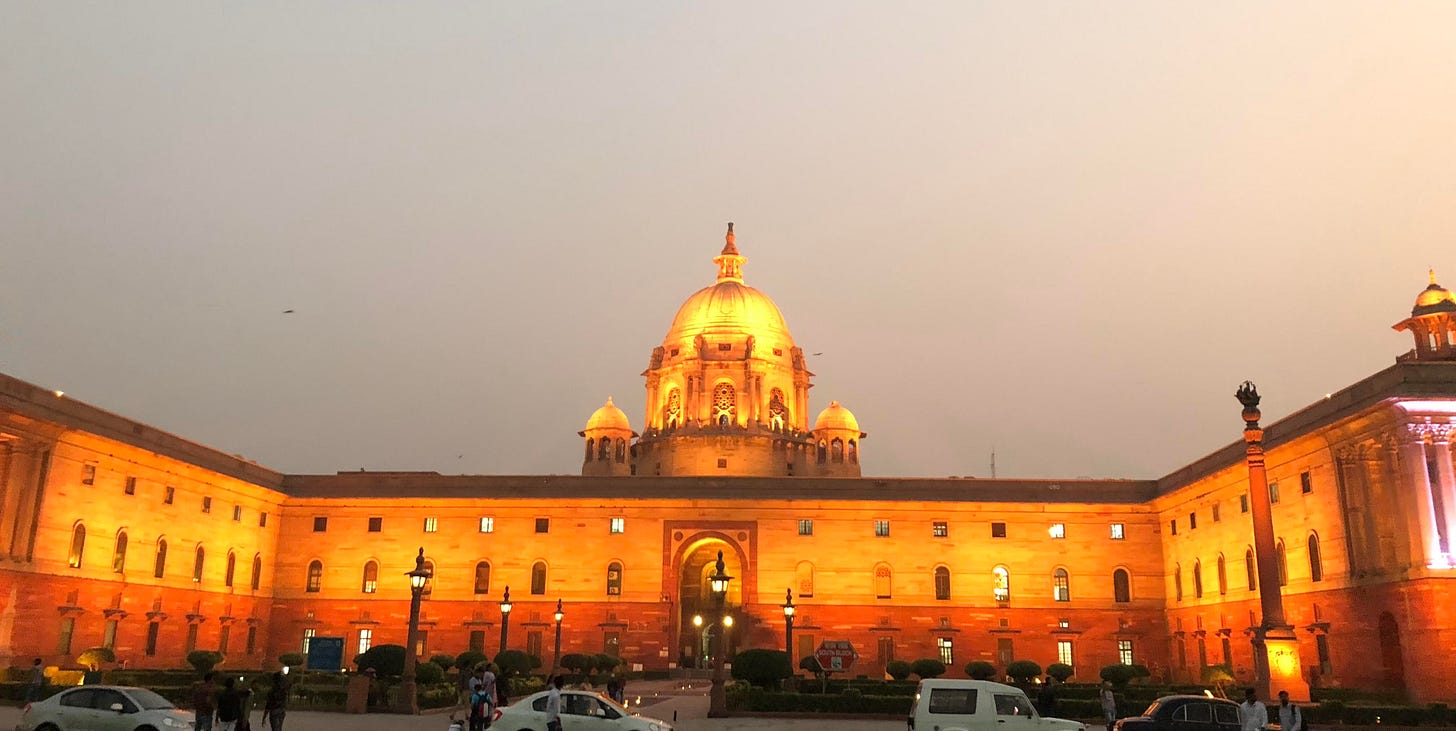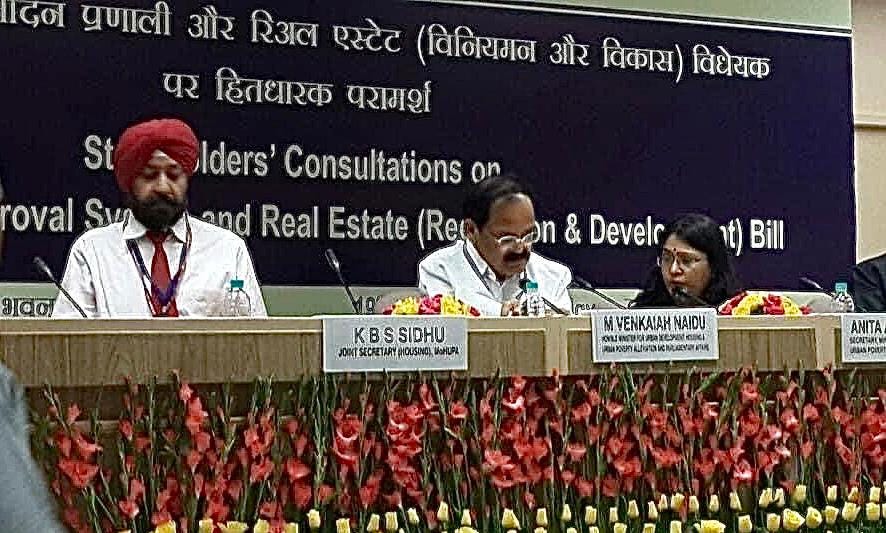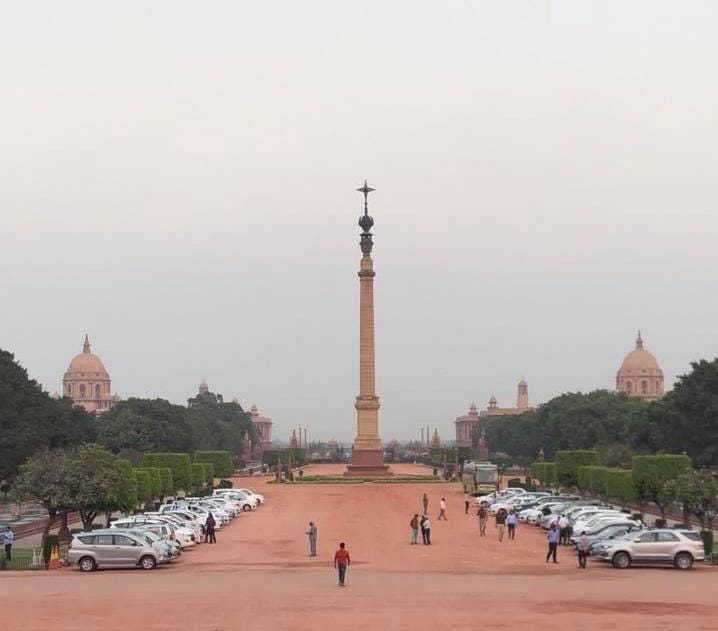The ₹500 Crore Question: Do Consultants Influence Government Policies?
A Critical Look at the Role of the Consultants in the Ministries and Departments of Government of India.
The Indian Express Exposé: ₹500 Crore Paid to “Five Big” Firms
An investigative exposé by The Indian Express, backed by its rigorous RTI initiative, has revealed that the Government of India has disbursed over ₹500 crores to the five prominent consulting firms—PWC, Deloitte, E&Y, KPMG, and McKinsey—across 16 ministries over a period of five years. Though the figure may seem modest against the backdrop of the Ministries' extensive budgets, it prompts a series of pertinent questions that warrant thorough scrutiny and, if necessary, future corrective measures.
The Role of Consultants in Governance
On the surface, enlisting external consultants, particularly in specialized domains lacking in-house expertise, seems practical. For example, the Ministry of Electronics and Information Technology's hiring of experts to navigate the intricacies of Artificial Intelligence (AI) during pivotal global engagements, like the recent summit hosted by UK Prime Minister Rishi Sunak, is understandable. However, the pattern observed suggests these consultants, typically engaged on a nomination basis and occasionally funded by foreign NGOs, tend to evolve into permanent features, rather fixtures, within central ministries, blurring the lines between external advice and internal policy-making.
These highly qualified professionals become the driving force behind the ministries, often directly annotating official documents that ascend to the Cabinet Minister. Their significant influence extends to crafting cabinet memoranda, inevitably raising the question: Why rely so heavily on external consultants if the Indian Administrative Service (IAS) claims comprehensive policy-making expertise?
Beyond IAS Expertise: Unmasking the Deeper Issues
The concerns stretch beyond the IAS’s asserted monopoly over policy expertise.
Firstly, the involvement of non-governmental consultants in handling sensitive documents, including Cabinet papers, raises concerns about confidentiality and information security—a risk that cannot be brushed aside in a casual manner.
Secondly, this scenario suggests that policy-making might be subtly influenced by private entities, potentially compromising the principles of neutrality, objectivity, and transparency that are the bedrock of governmental operations.
Thirdly, the influence of entities and NGOs, especially those with external funding, remains a significant blind spot. These organisations often escape scrutiny in investigative reports such as The Indian Express’s because they do not charge the ministries directly. Nonetheless, their deep pockets and foreign backing bestow upon them a substantial capacity to shape policy, an area that merits closer examination.
A Personal Account: Balancing Expertise with Ground Reality
Reflecting on my tenure as Joint Secretary and Additional Secretary (2013-2016), I witnessed the dependency of ministries on these consultants—a withdrawal could jeopardize their functioning. My surprise at the prevalence of foreign-funded professionals during my deputation at the Ministry of Housing and Urban Poverty Alleviation was profound. While these individuals exhibited integrity and intellectual prowess, their lack of grassroot-level insight into the real estate sector was palpable.
Drawing from my experience in Punjab's urban development sector, I could infuse a pragmatic perspective into final draft of the Real Estate Regulatory Authority Act, which was initially critiqued as "strangulation, rather than regulation" by Cabinet Minister M. Venkaiah Naidu post-2014 general elections.
Consultants' Role in Policy: A Necessary Evil?
While I assert that private consultants should not be hastily dismissed, their engagement must be judicious, with senior officers meticulously overseeing their contributions. Policymaking is a complex undertaking, particularly in India, affecting a vast population. Maintaining the integrity of this process and ensuring the protection of the public interest are of utmost importance. This is all the more critical in a context where the Supreme Court of India has consistently refrained from intervening in policy deliberations, except where they are shown to be patently unconstitutional.
Conclusion: A Call for Diligence and Prudence
The crux of the matter transcends the expenditure of ₹500 crores; it's about upholding the rigour and impartiality of the policymaking process while placing the public interest at its heart. It is imperative for the IAS cadre, along with the political executive, to vigilantly navigate these concerns, guaranteeing that the involvement of external consultants enhances, rather than undermines, the sanctity of the policy formulation process.1
https://indianexpress.com/article/express-exclusive/in-5-years-16-ministries-gave-rs-500-crore-work-to-big-five-consultants-9018061/








